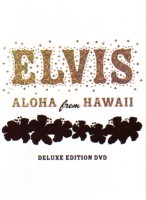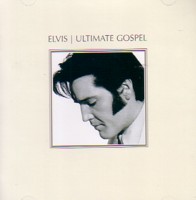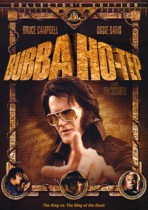 |
 |

(Above photo: Ray Walker & Elvis at the 1960 ‘GI Blues’ session)
Ray Walker– We have had such a busy year. From August 9th to the 24th we did seventeen performances, sometimes two shows a day. We have a little break now over Christmas but we start off again in January and the first 25 days are already booked up. We are always busy around Elvis’ birth and death days of course but this year has been pretty well balanced out all the way through. EIN – Let me ask you where you were born and a little about your own background? RW – I was born in Centreville, Mississippi. My father was a minister and because of that we moved around every 2 to 4 years, mainly on the Eastern seaboard. Our family wasn’t poor but when I was born we were living in a 3 room, lumber yard, shotgun house which was one room larger than Elvis’ - and our house is still there! We didn’t feel we were poor because my father was living within his means. Wilkinson, where we lived, was a very small place with just a saw-mill, grocery store, post office and a Church. EIN – How did you happen to be asked to join the Jordanaires to replace Hugh Jarrett? RW – Louis Nunley who sings with us now was the bass singer for the Anita Kerr quartet at the time and Gordon Stoker asked him "We need a bass singer, what are we going to do?" They had already tried out a lot of new singers. Louis said that if you need a good singer you call the David Lipscomb College in Nashville. So Gordon Stoker phoned up the choral director of the College where I had attended. Well that day I was teaching school out in the county and at that moment I was trying to ring in to get a message to the Choral director. Well the line was busy for about 10 minutes but then when I got through my former choral director, Buddy Arnold answered. Buddy said that he had just talked to Gordon Stoker of the Jordanaires and that they needed a bass singer and was I interested? EIN – Can you tell me why Hugh Jarrett left the Jordanaires at that time and is he still alive? RW – Oh yes, he’s still alive and lives in Atlanta! We are still friends and I talk to him every once in a while. He can tell you the full story but he also had his Disc Jockeying work and the Jordanaires heavy schedule just didn’t work out. RW – Actually no. I had heard of them but I was always too busy working so much in College that I never had the time to get to see them. They were in the Nashville area and performing on the ‘Grand Ole Opry’. I also knew that they had been on the Arthur Godfrey show and had won that. (Photo below: The Jordanaires, & Millie Kirkham, with Ray Walker on the right at the 'How Great Thou Art' session'
EIN – Can you explain to me the story of you teaching him how to sing the power ending of ‘Surrender’? RW – That was strange because he had already done ‘It’s Now or Never’ which is a high note too but that was on a different vowel and easier to hit. He came by me and said "Ray, you teach voice don’t you?" and I asked him what he needed. Elvis says "I want to hit that high note on the end of ‘Surrender’ but I can’t make it come out right". So we went out of the Studio to a storage room behind the Control room. I closed the door and made him bend over and put his hands on his knees and then I said "Can you throw up?" Well Elvis laughed and said "You don’t want me to throw up do you?!" So I explained that he needed to make the action from the gut like he was going to vomit. Doing that kind of action, pushing his gut against his belt, we went through the vowels. When he got to "U" he couldn’t get there. I put my finger up to his lips, near his nose, and said that if he didn’t feel vibrations right there, it wasn’t right. Elvis did it another time or two and then I told him to put a ‘Y’ in front of it. He got the right sound and said "OK, let’s go cut it!" Back in the studio he recorded it in just one take after that. He got through it and said "That’s it!" and he winked at me!
EIN – The very first session you did with Elvis was June 1958 where ‘Fool Such As I’ starts with your incredible bass notes. What was your first impression on meeting him? RW – That was a great session with ‘A Big Hunk O’ Love’ as well. We were there a little before he arrived. When he walked up they introduced me to him and I shook his hand. We looked at each other and all of a sudden the fame disappeared. I saw a person there that I really liked. The expression on his face showed that he was totally interested in me. I say that because when he spoke to somebody he was totally engulfed in the person in front of him. He made you feel so good about yourself and I could tell right off that he wasn’t looking through me and all of a sudden he didn’t have to be famous. I saw a man there and thought "This man is in for a lot of heartache because he was so tender" EIN – You must have just missed out on ‘King Creole’ which featured some great Jordanaires work in the film itself? RW – I was actually on some of that soundtrack because they had to re-do some of it but I wasn’t in the film. However I was in ‘G.I Blues’ with the one scene of us being in the train. After that there was less reason for us to be in the following films as the next couple were more drama orientated and then we just didn’t push it to be in any more of them. EIN – Did you perform on the Grand Ole Opry? RW – Oh yes. The Jordanaires had been performing there since the early 1950s but we continued to do so until about 1963 or 64. However we were working so much doing 2 to 4 recording sessions a day, seven days a week, that we finally had to resign from the Opry. RW – Well I should tell you that it has just been bought by Mike Curb, owner of Nashville’s Curb Records and it is being leased back to the Hall Of Fame Museum for one dollar per year. They plan to put it back on their tours. They are renovating it right now. They have still got the original piano and the old stand the record player used to sit on. It was a cheap thing that would never play right. Elvis one day said "You think they could afford a proper record player to play my records" and he kicked the door. Well it is still there with that hole that Elvis put in it! EIN – The Jordanaires were offered Elvis’ first Las Vegas tour of 1969 but I believe you all voted to stay in Nashville? RW – That deal was made really quickly and when they called us it was at such short notice that we wouldn’t have had long enough to get ready. We already had 34 recording sessions scheduled with major companies so we just couldn’t go - and also they couldn’t pay us what we needed to make it worth missing out on those sessions. In 1969 we were doing vocals on 80% of songs that came out of Nashville. I told Elvis "You build something to be well enough known and they have to grow past you boy!" – and he just laughed. EIN – That was the amazing thing about Studio B - all those stars that went through there. Patsy Cline, Tammy Wynette, Jim Reeves, Roy Orbison and so on and you harmonised behind all of them and all the way to k.d. Lang nowadays. RW – Actually when we started there weren’t many singers who were popular who didn't sound 'country'. It was a new thing for a pop voice to sing ‘country’ music and to have a pop-type of voice. Barbara Mandell had such a voice, she and Patsy Cline. -
k.d Lang is an enigma too, she is something else. RW – Oh yes, we used to go down to Graceland a lot and rehearse in that music room. He had the white piano in the music room at that time. We went down there before he added all that smoked glass and mirrors and stuff. EIN – It is hard to believe that of the 700 songs that Elvis recorded The Jordanaires backed him on more than an incredible 360. They went from the sublime tracks such as ‘Stand by Me’ & ‘How Great Thou Art’ to the ridiculous like ‘Song of the Shrimp’. How did Elvis cope with singing such great songs while at the same time being asked to sing such bad movie soundtracks? RW – We certainly recorded on a lot of them! Some were wonderful but he certainly had to sing some things that sounded bad as well. He looked those songs over and would say "Well what can you do with something like this?" but he’d always do it the best. Some of the stuff was just a job to him. Elvis said one time, "What do you think of this song?" I said "Well it doesn’t sound like much but it’ll be o.k. when you get through it because you are singing better now than when you did when you were a kid!" He always laughed, he was so good natured. One of the songs that I remember Elvis liked the most was ‘In My Father’s House’ which I actually found out was a number 1 in Holland when I visited there on a tour in 1999 for ‘The Party of the Century’. EIN – I believe that one of the last sessions you did with him was some overdubs on his 1970 material after he begun working with The Imperials in Las Vegas? RW – In 1970 Elvis came back through Nashville after a tour and we did some overdubs to fix up the backing vocals on his Country album because he didn’t like the way it sounded. There were 3 girls with us and the four Jordanaires and we actually recorded that live with him at the big RCA Studio ‘A’. That was a large studio built for concert recordings. We would always come in by the door at the end of the studio room 150 feet from the control room. I had gotten there early and all of a sudden I see this form running towards me. Running really fast! I didn’t get a third of the way in before he ran his arms up under mine and he picked me up and swung me around in a circle. It was Elvis and he says "You know, I’m so glad to see you. Are the other guys coming?" I said "Yep, they’ll be here in a little bit". One of the guys said that Elvis had been sitting in the control room listening to some playbacks that he was studying and as soon as he saw me coming in the back door he had jumped over the back of the chair that he was sitting on and also this dividing rail and bolted straight through the two doors of the studio to greet me. You talk about being warm-hearted! We never really had the time to capitalise on that but he so respected mankind, his family and close friends. EIN – There must have been such pressure on Elvis at that time? RW – I don’t know how he stood the pressure and I think he got disappointed in himself. The last time I saw him was in 1970. He came though Nashville sometime later on and Gordon saw him but unfortunately I was always busy travelling. I’ve never really felt him gone. EIN – How did it feel performing in Memphis this year at the 25th Anniversary and back together with Millie Kirkham too? RW – It was really something. We got Millie back to go along as some people believed that she had retired. I called her up and said "Millie, we have got to have you on some of these shows". She said that she’d come if she was called which she did. We just sounded so good with the new group and Gordon thinks we sound better than we ever did. Full fat harmony and we all love each other.
EIN - Let me congratulate you on your website. I recommend it to anybody who has an interest in Elvis or your music. I also love the photo sections including the fascinating pictures of when you were doing some modelling work. There is also that amazing quote from writer Elmore James (Get Shorty) about if Elvis was Jesus then the apostles might be The Jordanaires! RW – That quote isn’t sacrilegious as some people think but it is a funny comparison. I really enjoy this new technology and we have a lot more new material to go on the website soon - so keep on looking. And please check out the picture of Gordon Stoker on the front page, he looks so good & he’s now 78 and singing better than ever. EIN – Finally I believe that you and your wife Marilyn will be celebrating your 50th wedding anniversary in 2004 which is incredible for someone in the music industry. RW – Marilyn & I met when we were fourteen and started dating at 15. We ended up marrying in 1954 and by 1963 we had 6 children. We now have 15 grandchildren & 3 great grandchildren with the youngest being two years old. We have a wonderful family. Actually, we all stay married a long time. Gordon and his wife celebrated their 51st not long ago and Louis and his wife their 50th. EIN – Thanks so much for sparing so much time in this busy period. It has been absolutely fantastic talking to you and I wish you and your whole family all the best for Christmas and the New Year. RW – Thank you for calling and please wish everyone a Merry Christmas for me.
Check out the The Jordanaires website at www.jordanaires.net Copyright Elvis Information Network 2006/2002. Do not re-publish this interview without permission. Click to comment on this interview Go here for other relevant EIN articles: EIN spotlight on Gordon Stoker of The Jordanaires EIN spotlight on Elvis and Gospel music EIN reviews the FTD Fame & Fortune: EIN reviews 'Elvis Is Back' deluxe FTD EIN review for the FTD Deluxe 'Something For Everybody' DVD review of 25th Anniversary Concert in Memphis
|
|







